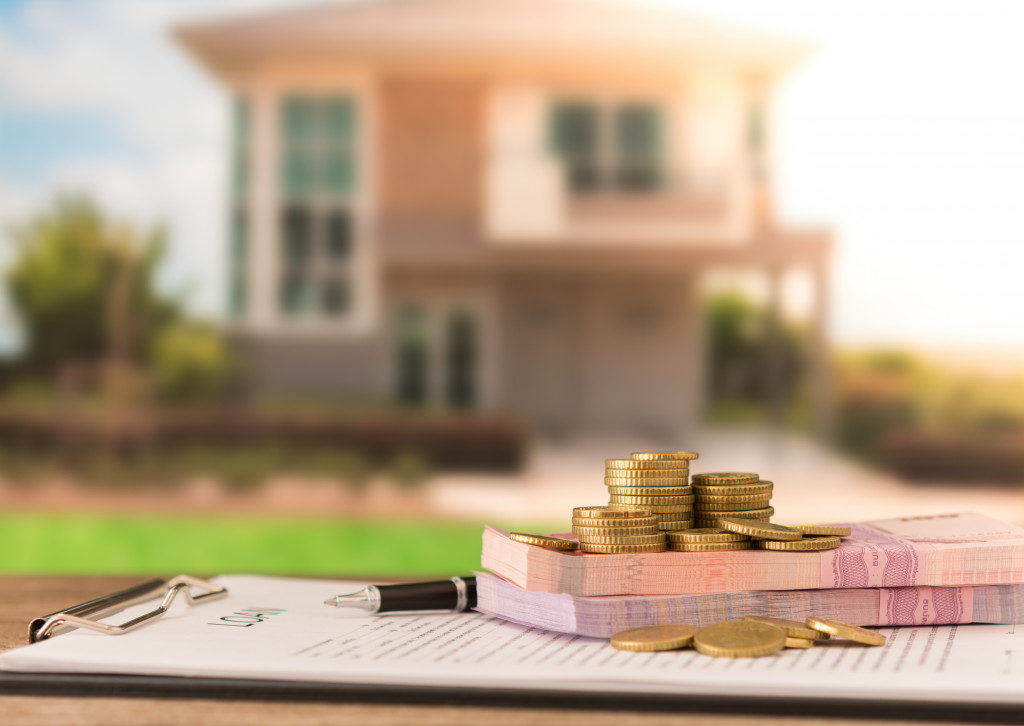There are many reasons why homeowners apply for mortgage refinancing, all of which are part of a strategy to either get out of debt, save money, or to generate cash that can be used for other purposes. In straightforward terms, looking to refinance a home is about getting a new loan in exchange for a current one to get more advantage rates and terms of payment.
Some people would like to take advantage of the low-interest rate. By doing so, they can save money by having to pay less in the long run. That usually means that they might have to make slightly higher monthly payments, but, in total, they would be paying less for the home purchase price. This method usually enables the homeowner to pay off fully the debt on the house faster; that is, the lifespan of the loan payment period is shorter, and the road to being debt-free is shorter.
Some opt for mortgage refinancing to access part of their equity, which can generate a certain amount to pay for an emergency expense like a scheduled hospital surgery, college tuition, or even a long-overdue house renovation.
But what are the options for a person or borrower who has a bad credit record? Having bad credit means that a borrower is unable to make payments for loans with the right amount and at the scheduled time. Worse, some do not make any payments at all. There are cases when borrowers have had to declare bankruptcy, a situation that also adversely impacts an individual’s credit history.
The good news is that even if a borrower experienced financial setbacks and incurs a not-so-good credit record, there is still hope.
Here are some ways to improve one’s chances to get refinancing:
1. Strengthen Relationships with Lenders, Get a Referral
Relationships are so important to people. It is such a vital part of human life that it extends even to a person’s financial dealings. For a homeowner looking to restructure a loan, building good relationships with managers, account executives, and the regular staff at the bank or mortgage lending company.
With a good relationship, the decision-makers at the lending institution would perhaps consider a borrower’s character and reputation, and hopefully, positively influence a decision to grant loan restructuring.
While most evaluations will be based on documents submitted during the application process, a person’s reputation for integrity, commitment, and a sense of honor, especially when meeting obligations, would surely help.
When these good relationships are established, the way also opens for the borrower to request for referrals that would help in the application process. In short, people who trust the borrower become willing to vouch for their ability to pay a refinanced loan.
2. Prepare a Budget and Stick to It
It would also help to backtrack a bit. Getting a poor credit record can almost always be traced back to poor or excessive spending. Even when a person is gainfully employed and earns a substantial amount of money, not knowing how to plan a budget can lead to financial ruin. It is a truism to say that it is not how much a person earns, but how they use and save what they earn that makes the difference.
To re-establish one’s good character and reputation, a borrower should show that they already know how to plan and stick to a budget. By stopping all unnecessary expenses and following a set of priorities, a person can progressively save enough money and allocate payments for obligations.
 3. Start Paying Off Bills and Loans
3. Start Paying Off Bills and Loans
With a reasonable working budget and a renewed sense of financial responsibility, a person with a bad credit record can regain the debtors’ trust. By paying off obligations starting with the smallest loan amount, a borrower can eventually pay off each debt one by one. To succeed, the borrower needs to exercise discipline and commitment.
4. Look for the Appropriate Refinance Plan
With the advice of professionals from a reputable mortgage lending company, a borrower can get more information on the pros and cons of a fixed-rate mortgage and an adjustable-rate mortgage. Again, these mortgage plans or schemes will depend on the prevailing rates and the length of time a borrower will stay in the property. Usually, a reduction in interest rates results in more savings and a build-up of equity. It may also lead to a decrease in monthly payments.
Getting to own one’s house debt-free is the goal of every person with a mortgage. With diligence, careful planning, and the right financial information — that goal is truly within everyone’s reach.



